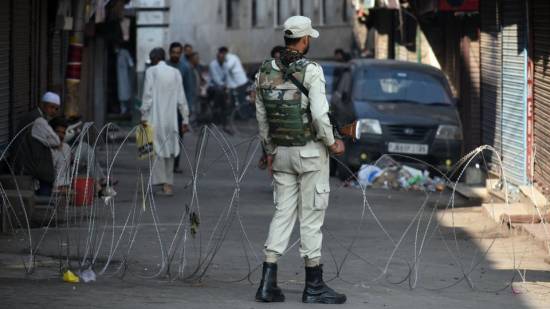People from any part of India eligible to vote in Kashmir polls: Official
A top electoral body official in Indian-administered Kashmir has said people from any part of India "living ordinarily" in the region are eligible to vote in the elections for the local assembly likely to be held next year.
The decision, which makes tens of thousands of labourers, workers, employees, students and businessmen from other states of the country eligible to vote, has sparked criticism in some quarters.
Chief Electoral Officer Hirdesh Kumar told journalists in the region’s capital Srinagar on Wednesday that after the abrogation of the special political status of Jammu and Kashmir in August 2019, many people who were not enlisted as voters are now eligible to vote.
"Anyone who is living ordinarily can also avail the opportunity to get enlisted as a voter in J&K by the provisions of representation of the Peoples Act,” Kumar said.
After scrapping the autonomy, the Indian government made the acquisition of a domicile certificate a necessity for any person to become eligible for residency or government employment in the region. Before August 5, 2019, only local residents could buy properties or apply for government jobs.
However, Kumar said, there is no need for a person to have a domicile certificate to vote.
"Any employee, student, labourer, or outsider living ordinarily in J&K can enlist his or her name in the voting list. The documents will be scrutinised by the government officials concerned, who will decide whether or not to accept the claim," he said.
Tens of thousands of soldiers and paramilitary soldiers stationed in the region can also be enlisted as voters.
Controversial move
The voter list is currently being revised, and Kumar expects that 2.5 million new voters, including those over the age of 18, will be added this time.
Omar Abdullah, the former chief minister of erstwhile Jammu and Kashmir state and India's former minister of state for foreign affairs, criticised India's ruling Bharatiya Janata Party (BJP) for the move.
“Is the BJP so insecure about support from genuine voters of J&K that it needs to import temporary voters to win seats? None of these things will help the BJP when the people of J&K are given a chance to exercise their franchise,” Omar tweeted.
Fears of demographic flooding and political disempowerment in this Muslim-majority region have heightened since the region’s loss of autonomous status.
Mehbooba Mufti, another former chief minister, tweeted that the decision to postpone elections in the region was “preceded by egregious gerrymandering tilting the balance in BJP's favor and now allowing non-locals to vote is obviously to influence election results.”
"The real aim is to continue ruling Jammu and Kashmir with an iron fist to disempower locals," she added.
Kashmir, a Muslim-majority Himalayan region, is administrated by India and Pakistan in part but claimed by both in full. A small sliver of the region is also administrated by China.
Source: AA


